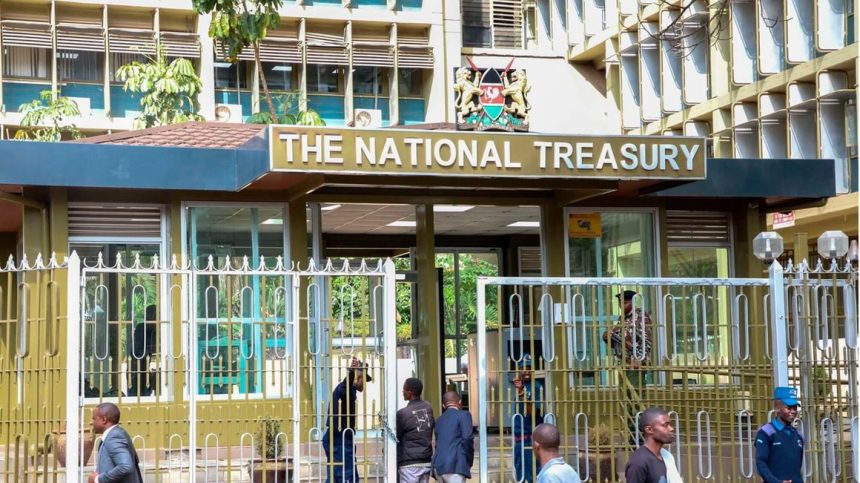The government’s share of domestic debt held in Treasury bills has dropped to a new low of 13 percent, easing refinancing concerns in the short term for the exchequer amid high debt service obligations.
The outstanding stock of T-bills now stands at Sh627 billion, down from Sh671.5 billion at the beginning of the year, indicating the government has been retiring some maturing T-bills without seeking to roll over.
Read: Investors flock to T-bills eyeing higher returns
A number of issuances have also seen the Central Bank of Kenya (CBK) taking up just enough in bids to cover maturities.
The Treasury’s total domestic debt stood at Sh4.55 trillion by the end of last week.
The Treasury has been cutting exposure to T-bills in recent years after the maturity profile of domestic debt fell to just 4.1 years in June 2018, meaning the State would face significant refinancing pressure due to debt falling due in large volumes at shorter intervals.
To remedy this, the regulator has been issuing long-dated bonds while also reducing reliance on Treasury bills for budget deficit financing.
“The share of bonds now in total lending is about 87 percent, and only 13 percent is in T-bills. Also, the average time to maturity of those bonds is about nine years,” said CBK governor Kamau Thugge last week.
Investors have also helped by showing a bigger appetite for bonds in relation to Treasury bills in recent issuances, attracted by better yields on the longer papers, especially infrastructure bonds.
The most recent infrastructure paper, sold last month, raised Sh213 billion, tipping the balance further in favour of bonds in the domestic debt mix.
Holding a larger share of debt in bonds helps the government to plan its fiscal outlay better over the longer term, and insulates it to an extent from fluctuating market liquidity conditions.
For instance, a large tranche of maturing T-bills in a period of tight liquidity could force the government to dip into other revenue to settle claims.
High volumes of T-bill maturities have also seen the government issue switch bonds to defer settlement.
In November 2022, for instance, the CBK issued an Sh87.8 billion, six-year infrastructure bond in a switch auction targeting holders of Treasury bills and a short-term bond which was due to mature on January 9, 2023.
The switch auction was successful at extending Sh47.8 billion in expected maturities with holders of the two-year bond accepting the bulk of the switch at Sh39 billion.
The Treasury had previously deployed the debt management instrument in June 2020.
This switch bond was also in the form of a six-year infrastructure paper, which netted Sh20.2 billion out of a target of Sh25.6 billion — the worth of a maturing one-year Treasury bill that the State was looking to roll over.




